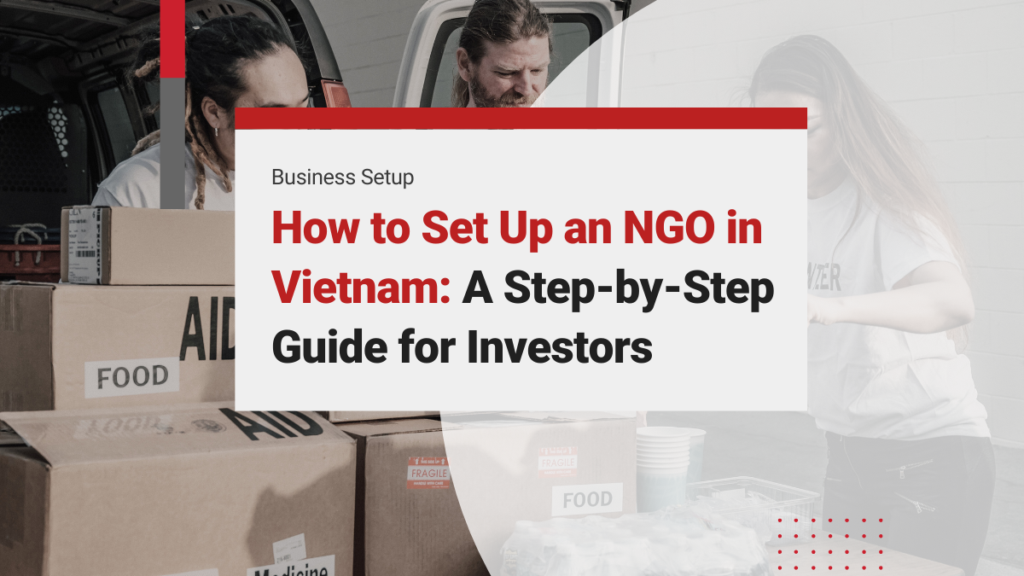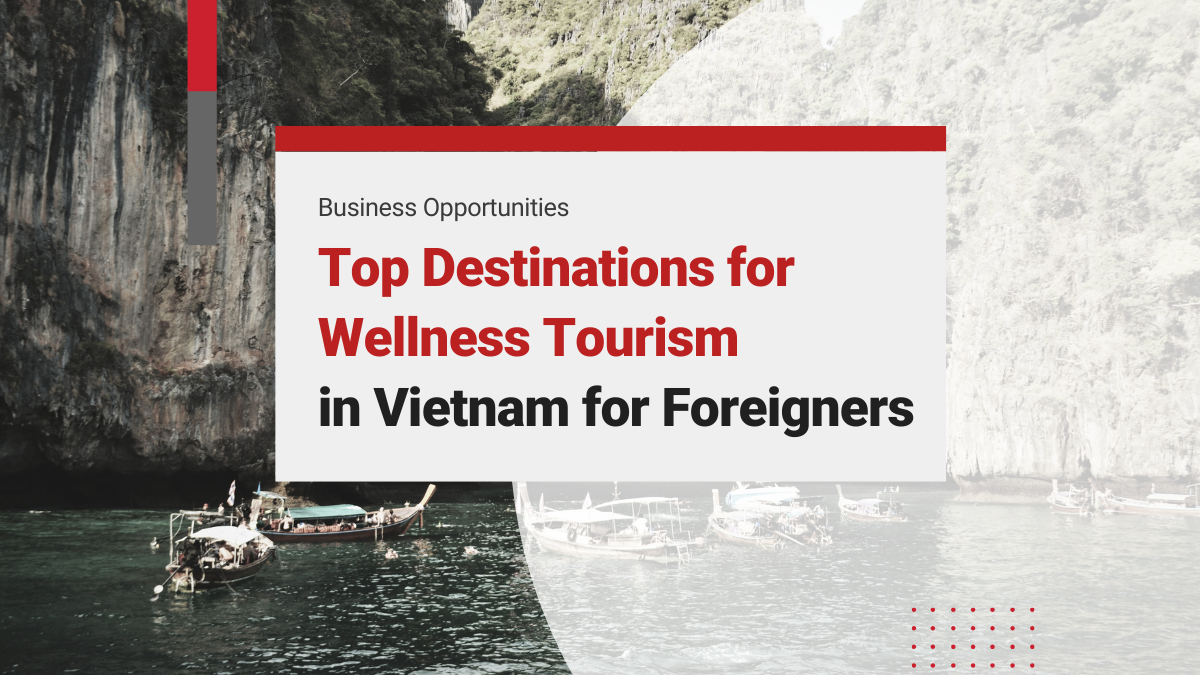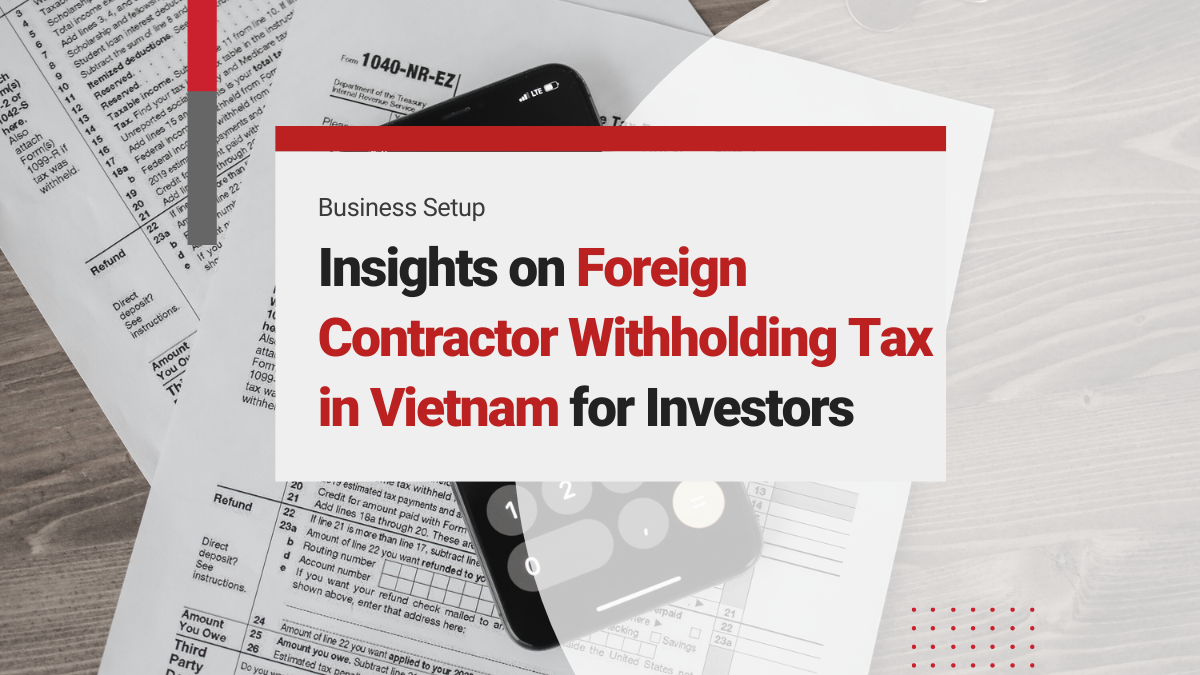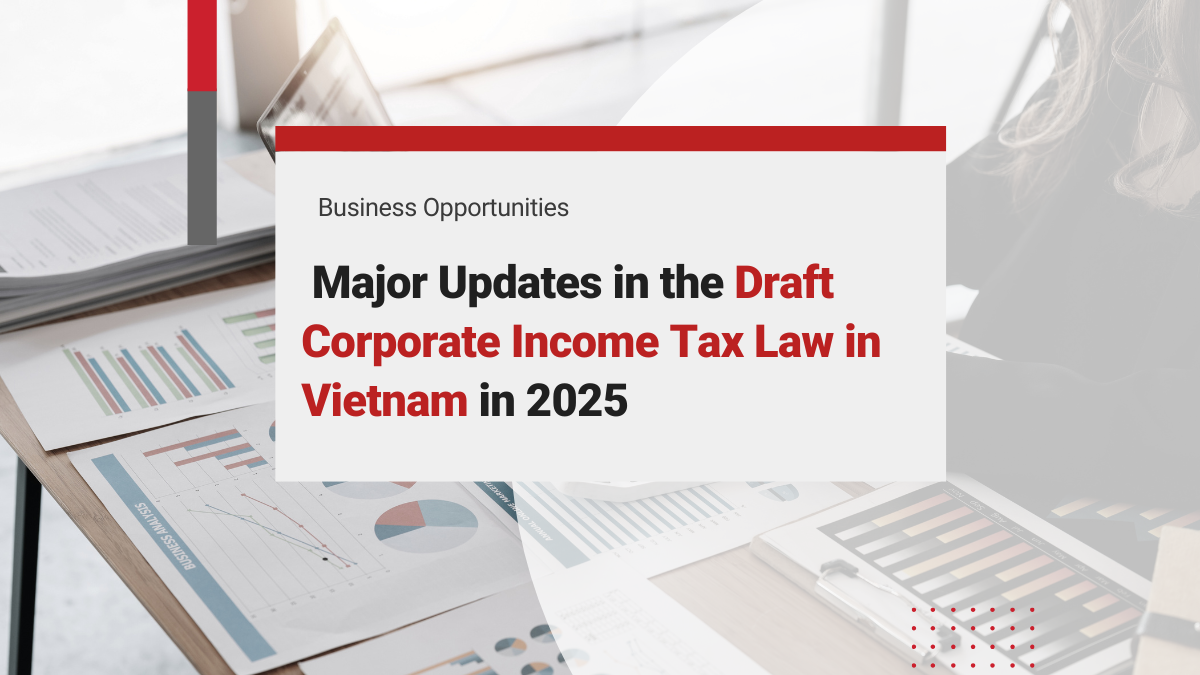Setting up a non-governmental organization (NGO) in Vietnam can be a meaningful way to contribute to social and community development. However, navigating the legal framework, company registration procedures, and compliance requirements can be complex – especially for foreign organizations.
This guide provides a clear overview of the legal landscape for both local and foreign NGOs in Vietnam. From registration steps to operational regulations, you’ll find the essential information needed to launch and manage your NGO successfully and in line with Vietnamese law.
Understanding the Structures of NGO in Vietnam
NGO in Vietnam is primarily categorized into local and foreign NGOs. Local NGOs are established as local funds aimed at charitable, social, and developmental goals, covering areas such as culture, education, healthcare, and social welfare. These organizations play pivotal roles in addressing community needs and promoting sustainable development within the country.
Foreign NGOs, on the other hand, are organizations that are set up by foreign entities and operate under different registration conditions compared to local NGOs. These organizations often bring international expertise and resources to support Vietnam’s development goals. Notable examples of such organizations include CARE International and Save the Children, which have established a significant presence as foreign NGO in Vietnam. Additionally, non-governmental organization efforts complement these initiatives.
Both local and foreign NGOs contribute to Vietnam’s socioeconomic landscape, but each type has its advantages and operational frameworks. Understanding these structures helps you choose the right path for your NGO, aligning it with your mission and Vietnam’s regulatory requirements.
Legal Requirements for Establishing an NGO
Decree No. 58/2022/ND-CP governs the legal framework for establishing an NGO in Vietnam, which took effect on November 1, 2022. To register, an NGO must have legal status in its home country and a clear operational charter that aligns with Vietnamese interests. This helps align the NGO’s activities with the nation’s socioeconomic goals.
Before applying for operational status, NGOs must notify both the Ministry of Foreign Affairs and the Committee for Foreign NGO Affairs (COMINGO). Additionally, a comprehensive code of ethics outlining the mission and operational guidelines of the NGO must be provided during the application process. This step ensures transparency and accountability in the NGO’s operations.
Operating certificates for NGOs are valid for a maximum of three years, while representative office certificates can last up to five years. NGOs must obtain a permit before operating legally in the country. These licensing and capital requirements are in place to ensure that only serious and bona fide organizations are allowed to operate in Vietnam.
Interested in Setting Up a NGO in Vietnam? Check out InCorp Vietnam’s Incorporation Services
Registration Process for Foreign NGOs
Foreign NGO in Vietnam is governed by Decree 58/2022/ND-CP, which enhances the regulatory framework for their operations. The registration process involves several steps to ensure that NGOs comply with local laws and regulations. Applications for NGO registration must be directed to the Committee for Foreign NGO Affairs (COMINGO).
Foreign NGOs must notify the Ministry of Foreign Affairs and COMINGO when applying for registration in Vietnam. The Ministry of Foreign Affairs is responsible for assessing the application dossier, which includes scrutinizing funding sources, financial capacity, and supporting documents.
Foreign NGOs have two options for registration. They can choose between the Operation Registration Certificate (ORC) and the Representative Office Registration Certificate (RORC).
Read Related: Your Easy Guide to Obtaining an Investment Registration Certificate (IRC) in Vietnam
Application Submission
The application process involves submitting detailed project proposals and adhering to the guidelines outlined in Decree No. 58/2022/ND-CP. NGOs must provide a comprehensive code of ethics that aligns with Vietnam’s socio-economic development goals as part of the application.
Foreign NGOs must establish their operations in one of three specific cities. These cities are Hanoi City, Ho Chi Minh City, and City of Danang. When applying for registration, NGOs must present a three-year proposal for projects and activities in Vietnam. This alignment ensures the NGO’s activities are well-planned and support the country’s development objectives.
Approval Timeline
The approval process for foreign NGO registration has a response period of 30 working days. The licensing procedure for NGO registration lasts approximately 40 business days. Considering this timeframe is important when planning the registration process. To expedite the registration process, ensure all documents are thoroughly prepared and comply with local regulations to avoid delays.
In some cases, the time limit for handling amendment, supplement, and re-issuance procedures for foreign NGOs is 25 working days. Proper preparation and adherence to guidelines can reduce delays and ensure a smooth registration process.
Read Related: Enterprise Registration Certificates (ERC) in Vietnam for Company Formation
Taxation and Financial Regulations
Under Decree No. 58, NGOs can enjoy various tax incentives and preferential import duties while focusing on humanitarian or development assistance. The Enterprise Income Tax Law, Personal Income Tax (PIT) Law, and Value-Added Tax (VAT) regulations provide benefits applicable to NGOs in Vietnam. For instance, goods imported as humanitarian aid and monetary aid from foreign donors for humanitarian activities are exempted from VAT.
To qualify for preferential tax treatment, NGOs must operate for charitable and social purposes, humanitarian or not-for-profit purposes. This ensures resources are used effectively and align with the NGO’s mission to support development and humanitarian goals in Vietnam.
Explore More: Get Accounting, Taxation, and Bookkeeping Services in Vietnam
Compliance and Reporting Obligations
NGOs are required to submit a report on their activities every six months to COMINGO and the local People’s Committee. This biannual reporting maintains transparency and ensures the NGO’s activities comply with local regulations. Regular reporting also facilitates oversight by the competent authorities.
Moreover, NGOs must maintain a transparent financial management system, including utilizing bank accounts for all financial dealings. This requirement prevents financial misconduct and ensures funds are used appropriately for the NGO’s operations and projects.
Prohibited Activities and Legal Constraints
The Vietnamese government prohibits NGOs from engaging in political activities that contradict national interests. Participation in or sponsoring terrorism-related activities is strictly forbidden for NGOs. Additionally, NGOs are prohibited from any activities outside their allowed scope as defined by Vietnamese law.
Foreign NGOs cannot collect donations from individuals and organizations in Vietnam, emphasizing their dependency on international resources. NGOs must also avoid money laundering, activities that violate social ethics, and any actions that conflict with Vietnam’s national interest, security, or ethics.
Read Related: A Comprehensive Guide to Regulated Business Lines in Vietnam
Setting Up a Social Enterprise
Social enterprises in Vietnam must align with specific social objectives aimed at addressing community, social, and environmental issues. A social enterprise is legally required to reinvest a minimum of 51% of its after-tax profits into its social missions. This reinvestment keeps the enterprise focused on its social and environmental goals.
Social enterprises can adopt various models, including social product/service, community cooperation, and financial support models. Effective organizational structures enhance transparency and operational efficiency in social enterprises.
Receiving Donations and Funding
NGOs can receive financial donations and aid, with an estimated total of US$250 million provided by foreign NGOs in Vietnam. Decree No. 58 allows NGOs to conduct transactions in both Vietnamese Dong and foreign currencies. Additionally, NGOs can import goods with preferential duties for humanitarian purposes.
However, foreign NGOs are not allowed to raise and receive local donations in Vietnam. Associations in Vietnam are permitted to receive aid and donations and mobilize foreign aid, but they have limitations in fundraising from non-members.
NGOs can raise funds through lawful donations from individuals and organizations, along with membership fees and business revenues.
Choosing the Right Office Location
Foreign NGOs can only establish their offices in Hanoi, Ho Chi Minh City, or Danang. Choosing the right office location ensures compliance with local laws and sustains effective operations. These cities offer the necessary infrastructure and regulatory environment to support foreign NGOs.
Office locations for foreign NGOs are restricted from sensitive sites, including the headquarters of the Communist Party and government agencies. This restriction maintains the security and integrity of sensitive areas while allowing NGOs to operate within designated urban centers.
Read More: Vietnam Business Location Guide: Start Smart
Navigating Vietnam’s Regulatory Environment
Vietnam’s regulatory environment can be complex. Hiring a professional firm can facilitate the understanding of Vietnam’s complex regulatory environment and help NGOs focus on their mission. Understanding local laws and regulations is key to effective NGO operation in Vietnam.
Regular training on compliance issues is recommended for NGO staff to ensure adherence to Vietnamese laws. Staying informed and compliant helps NGOs avoid legal complications and focus on achieving their goals.
How InCorp Vietnam Can Help?
InCorp Vietnam simplifies the process of establishing an NGO in Vietnam by providing expert guidance through the intricate regulatory landscape. They assist in determining the appropriate NGO structure, ensuring compliance with legal requirements, and managing the registration process. InCorp Vietnam also offers support in navigating financial and reporting obligations, mitigating potential risks associated with prohibited activities and legal constraints. Their expertise allows organizations to focus on their mission, ensuring effective operation and meaningful contributions to Vietnam’s social and developmental landscape.

clients worldwide

professional staff

incorporated entities in 10 years

compliance transactions yearly
Learn the Right Setup for Business
Expansion in the Vietnam
Frequently Asked Questions
What are the main types of NGOs in Vietnam?
- The main types of NGOs in Vietnam are local NGOs and foreign NGOs, each subject to distinct registration requirements and operational frameworks. This classification reflects the diverse landscape of non-governmental organizations operating within the country.
What legal requirements must be met to establish an NGO in Vietnam?
- To establish an NGO in Vietnam, it is essential to have legal status in your home country, inform the Ministry of Foreign Affairs and COMINGO, and submit an operational charter alongside a code of ethics that aligns with Vietnamese interests. These requirements ensure compliance with local laws and regulations.
How long does the approval process for foreign NGO registration take?
- The approval process for foreign NGO registration typically takes around 40 business days, with a response period of 30 working days. It is crucial to account for this timeframe when planning your application.
Are there any tax incentives available for NGOs in Vietnam?
- Yes, NGOs in Vietnam are eligible for tax incentives, such as VAT exemptions for imported humanitarian goods and monetary aid from foreign donors.






